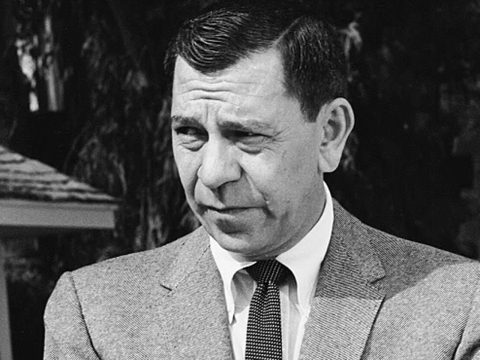“This is the city: Los Angeles, California.”
With those words, an episode of the 1960s version of “Dragnet” would start. Perhaps the most accessible version of the classic cop concept – due to all four seasons being available on Netflix – it’s probably the one most people will remember.
Just how good was it? Consider this: Its cancellation in 1970 was not because the network didn’t feel it was pulling in ratings, but because show creator/star Jack Webb was focusing on other shows, like “Adam-12” and “Emergency!” (which was this author’s favorite as a kid). The 1950s “Dragnet” was cancelled for the same reason – Webb wanted to pursue other projects.
“Dragnet” has aged well. Around his death, Webb was planning a third incarnation with Joe Friday, starring alongside Kent McCord (Joe Friday and James Reed as partners). After he died, two re-boots were attempted, but each lasted only two seasons.
The first, in the late ’80s, didn’t have Joe Friday, and star Ed O’Neill’s take was too far removed from the original concept. Why does the model from the 1950s and 1960s still work so well, six decades after the “Dragnet” template first began on radio?
The best response is to answer one question: What do you get with “Dragnet?” For one thing, it is not like even the early episodes of “Law & Order” in that it is very rare to see the bad guys get away. It was also clear that the bad guys were bad guys – and Friday is not above ranting about the atmosphere of the 1960s.
In “The Big Prophet” episode, Friday and Bill Gannon debate a proponent of the use of drugs who is an obvious stand-in for Timothy Leary. That is just one of the things conservatives would appreciate.
One of the other things that conservatives would like is the fact that the series promoted the rule of law. Perhaps the best example of this was in “The Shooting Board.” In this episode, Friday is involved in a shoot out with a man breaking into a laundromat. When it is difficult to prove Friday’s version of events, a supervisor, Captain Hugh Brown, explains why the shooting board process was necessary.
“You want this cleared up with facts, not opinions, and that’s the way it’s gonna be,” he tells Friday. In the end, of course, investigating officers eventually find the slug from the suspect’s gun, and Friday is cleared – and receives a carton of cigarettes from his fellow officers.
If there is a political agenda in “Dragnet,” it’s not overt. Yes, the counter-culture and bad guys are the target, but politics are left out of the show. The closest you can get to it is a speech in “The Big Kids” when a senior officer says, “What it boils down to is the New Morality: A whole new sense of values. The kids see it on television, in magazines, even hear it from the pulpit. God is dead, drug addiction is mind-expanding, promiscuity is glamorous, even homosexuality is praiseworthy.”
The notion that a good guy would say that today on a prime-time drama is almost unthinkable – but 45 years ago, it was done!
Friday even tells a group of kids, “When you live in a society, you either live by the rules, or by the democratic process, you change them. You don’t break `em!”
Most everyone – regardless of political affiliation, would agree with that as well.
Friday is equal-opportunity crackdown – in at least one episode, he was tracking down a militia group that was involved in illegal weapons – including a M1A1 submachine gun. But for the law-abiding citizens, they are often seen as good people, no matter what race they are, and ideology never comes into it.
This has not been the case with more recent cop dramas. Even early “Law & Order” episodes were willing to paint pro-lifers as extremists. “CSI” has been more apolitical, and the “CSI: NY” part of the franchise holds ups well. Perhaps the closest to “Dragnet’s” lack of politics has been “Blue Bloods,” which features Tom Selleck.
Ultimately, “Dragnet” is a classic. I still enjoy watching it today – much as I did when I watched reruns on USA when I was a kid. Can that formula be re-done today – in the same vein Webb did, and promoting the same values? It’s possible – if Hollywood would just try.

COMMENTS
Please let us know if you're having issues with commenting.